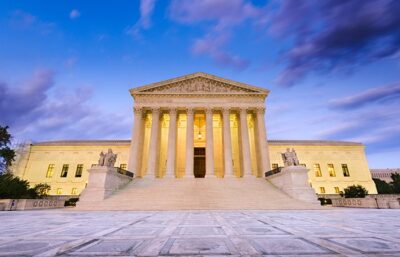The Supreme Court on Thursday ruled against Maui, Hawaii and sided with environmentalists by giving a broad reading to the types of water-borne pollution covered by the Clean Water Act. In a 6-3 decision, the justices held that a permit is required for either a direct discharge of pollutants into federally regulated rivers and oceans or its “functional equivalent.”“Suppose, for example, that a sewage treatment plant discharges polluted water into the ground where it mixes with groundwater, which, in turn, flows into a navigable river, or perhaps the ocean,” Justice Stephen Breyer wrote for the majority.”At issue in the case was whether Maui County in Hawaii violated the Clean Water Act, the landmark 1972 environmental law, by injecting wastewater underground without a permit that then seeped into the Pacific Ocean.In siding with environmental groups, Breyer was joined by his fellow liberal justices Ruth Bader Ginsburg, Sonia Sotomayor and Elena Kagan, as well as more conservative Justice Brett Kavanaugh and Chief Justice John Roberts. The decision returns the case, County of Maui, Hawaii v. Hawaii Wildlife Fund, to the 9th Circuit Court of Appeals to apply the new “functional equivalent” test.The SCOTUS decision in COUNTY OF MAUI, HAWAII v. HAWAII WILDLIFE FUND ET AL is found here>> https://www.supremecourt.gov/opinions/19pdf/18-260_5i36.pdf
- Credentials
- Recertification
- Resources
- About
- Committees – Our People
- Board of Directors
- Executive Committee
- Standing Committee on Finance
- Standing Committee on Nominating
- Fellows Nominating Committee
- CHMM Examination Committee
- CHMM Recertification Committee
- CDGP Scheme Committee
- CHMP Scheme Committee
- CSHM Scheme Committee
- IHMM Professional Textbook Committee
- IHMM Scholarship Committee
- Committees – Our People
- Store
- News
- Online Directory
- My IHMM
- Need Help?


